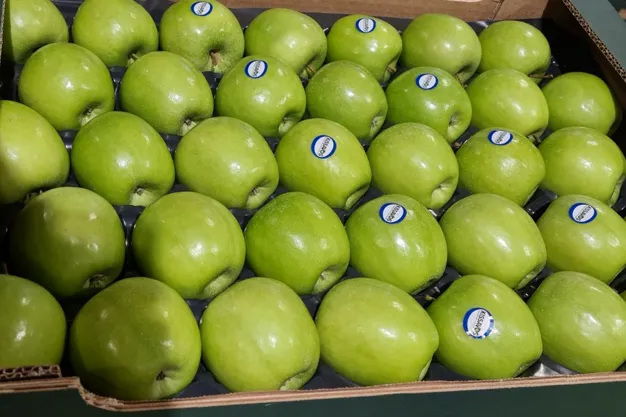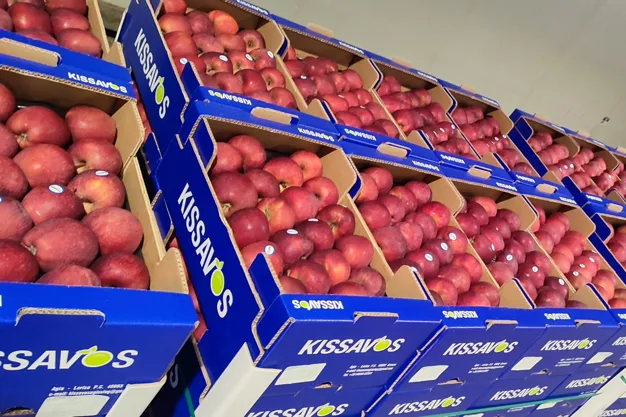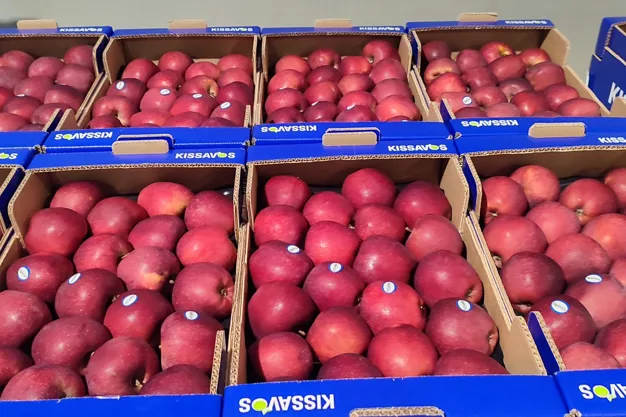Although the Greek apple season had a very promising start, unfortunately the reality turned out very different, says Matoula Katsika, export and sales manager for Greek fruit exporter A.C. Kissavos: "The apple season started very dynamically from its beginning until the end of October 2023. The demand was growing, and we thought we would continue at this intensive pace. But the start of the war in Palestine turned everything upside down. From the beginning of November 2023 until the beginning of February 2024, the quantities of exports to the Middle East were negligible. We have passed three months without export activity by now."

As a result of the lower demand, the prices have also dropped by quite a bit, Katsika explains. "In the last two weeks, we timidly started some shipments to these countries after activating our customers, by giving them competitive prices. Prices for red varieties fell by 20 per cent and Granny Smiths by 10 per cent. Compared to last year, sales prices are clearly better. But consumers have limited their purchases. Last year at this time, we had a large number of exports compared to today."
It's not as if the start of the Greek apple season was perfect in itself, but the lack of volumes did seem to lead to profitable opportunities, Katsika states: "Although at the beginning of the year the apple quantities were reduced by 40 to 50 per cent due to frost and disease infection, it still seemed that it would be an excellent year. However, due to the war in the Middle East, suddenly this turned into a large volume of unsold apples that I'm afraid will remain unsold, due to the lack of demand. Let's not forget that apple cultivation is now thriving almost all over the planet."

Katsika feels that consumers aren't eating as many apples as before at this point: "Markets are moving at a very slow pace, by which I mean the underconsumption of apples. Both here in Greece and abroad, there is a subdued attitude of the markets. Smaller quantities are requested and at the lowest market prices. Another major problem that has arisen, is the transport and distribution of apples in the countries of the Middle East. There are long delays in our shipments, with the risk of deterioration of the quality and higher transport costs, resulting in delays in our payments. And this is a problem that hinders our work."
As demand is quite low, the prices for the apples are also dropping according to Katsika: "Prices are now falling, and this is because large quantities of apples remain unsold in the cold stores. The weather we are going through, is pushing us to move more intensively in sales, because in a few months we will start summer fruits, such as cherries and apricots. There may be greater mobility, but this depends on the mood of the markets and the willingness of the consumer to consume our product."

Overall, the Greek apple season has been pestered by all of these challenges. But Katsika emphasizes it's up to them to get out of the situation, stronger than before. "I believe that as long as this global turmoil lasts, with the wars that have surrounded us, the loss of income of consumers and climate change, along with the severe weather events, especially here in our region affected by the storm Daniel, will continue to affect us negatively. As an Agricultural Cooperative of Kissavos, despite the adverse conditions we're going through, we try to keep the quality and prices at a stable level. This will allow us to become more competitive and generally to offer the best we have to our customers. These are difficulties that only the strong can conquer and we prove it daily with our presence in the fruit trade, building a name of trust."
For more information:
Matoula Katsika
A.C Kissavos
Tel: (+30) 24940 22261
Email: kissavosagiassales@gmail.com
https://kissavosgroup.gr

